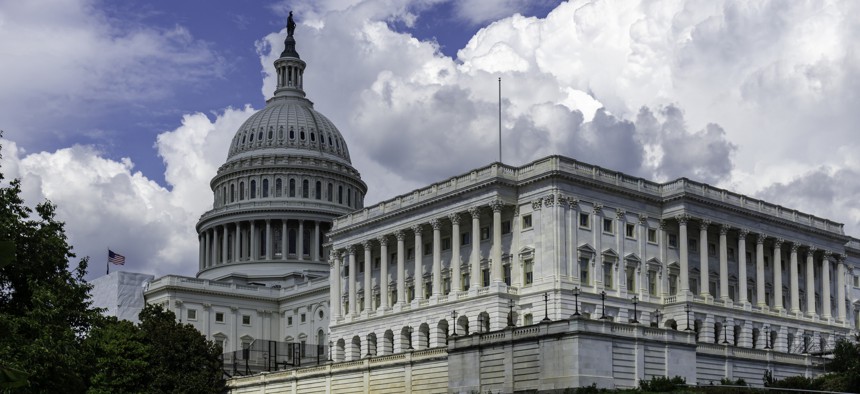- House Republicans propose steep cuts in funding for technology initiatives
- Technology Modernization Fund would receive no new funding in fiscal 2025
- Overall bill allocates 20% below White House budget request and 10% below fiscal 2024 funding
- Information Technology Oversight and Reform account would receive significantly less than requested
- Proposal includes policy riders on cybersecurity and IRS electronic filing systems
Tech Funding Cuts in House Republicans’ Proposal
In a recent development, House Republicans have put forward a fiscal 2025 Financial Services bill that includes significant cuts to technology funding. The Technology Modernization Fund (TMF) is one of the areas facing a funding freeze under this proposal. The TMF, which serves as a revolving fund for IT modernization projects, would not receive any new funding according to the bill. This move has raised concerns as the administration had requested $75 million for the fund in its fiscal 2025 budget request. The lack of additional appropriations could hinder the fund’s ability to support crucial digital solutions and meet the high demand for its services.
The TMF had also faced funding challenges in the past, with Congress zeroing out the fund in fiscal 2024 appropriations and rescinding $100 million from the $1 billion allocated through the 2021 American Rescue Plan Act. Despite these setbacks, the program has been managing ongoing projects worth $900 million, highlighting its importance in driving digital transformation initiatives.
Implications for Federal Technology Accounts
Apart from the TMF, other federal technology accounts are also affected by the proposed funding cuts. The Information Technology Oversight and Reform account, responsible for funding the Office of the Federal Chief Information Officer and the U.S. Digital Service, would receive significantly less than its funding request. While the account had asked for around $44.5 million in the fiscal 2025 budget request, the proposed bill allocates only $8 million, the same as its fiscal 2024 funding.
Related Video

The U.S. Digital Service, which has been relying on its $200 million funding from the American Rescue Plan Act, is set to transition back to using appropriations as the allocated funds expire at the end of the fiscal year. Lawmakers are looking to provide USDS with new authority for agencies to transfer or reimburse funds, up to a cap of $30 million. This move aims to ensure that USDS can continue its pivotal role in driving technology and innovation within the government.
Changes in Federal Citizen Services Fund
The Federal Citizen Services Fund (FCSF) at the General Services Administration, administered by the Technology Transformation Services, is also impacted by the funding proposal. While the fund requested $97 million in direct appropriations, it is set to receive $55 million in appropriations under the bill. Additionally, there will be a cap of $29 million on agency reimbursements and a total cap of $150 million for appropriations, revenues, and reimbursements. These figures represent a decrease from the previous year, signaling a shift in funding priorities within the federal government.
Policy Riders and Controversies
In addition to the funding cuts, the House Republicans’ proposal includes several policy riders related to technology issues. One notable provision aims to prevent the Securities and Exchange Commission (SEC) from using $2 billion in funding to enforce a regulation requiring public companies to report cybersecurity incidents promptly. This disclosure rule has sparked debates among lawmakers and cybersecurity professionals, with concerns raised about its potential impact on companies’ cybersecurity strategies.
Another contentious issue in the proposal is the restriction placed on the Internal Revenue Service (IRS) from developing or offering a free government-backed electronic filing system without prior approval from congressional committees. The IRS had recently committed to launching its new Direct File system permanently, a move that has faced criticism from some quarters. Democrats have lauded the IRS’s initiative to provide the tool, emphasizing the importance of modernizing IT systems to enhance service delivery.
The House Republicans’ funding proposal reflects a shift in priorities regarding technology funding within the federal government. While the cuts may help rein in spending, there are concerns about the potential impact on critical IT modernization projects and digital services. As the appropriations process unfolds, stakeholders will closely monitor the final decisions to understand the implications for federal technology initiatives and innovation efforts.
Links to additional Resources: